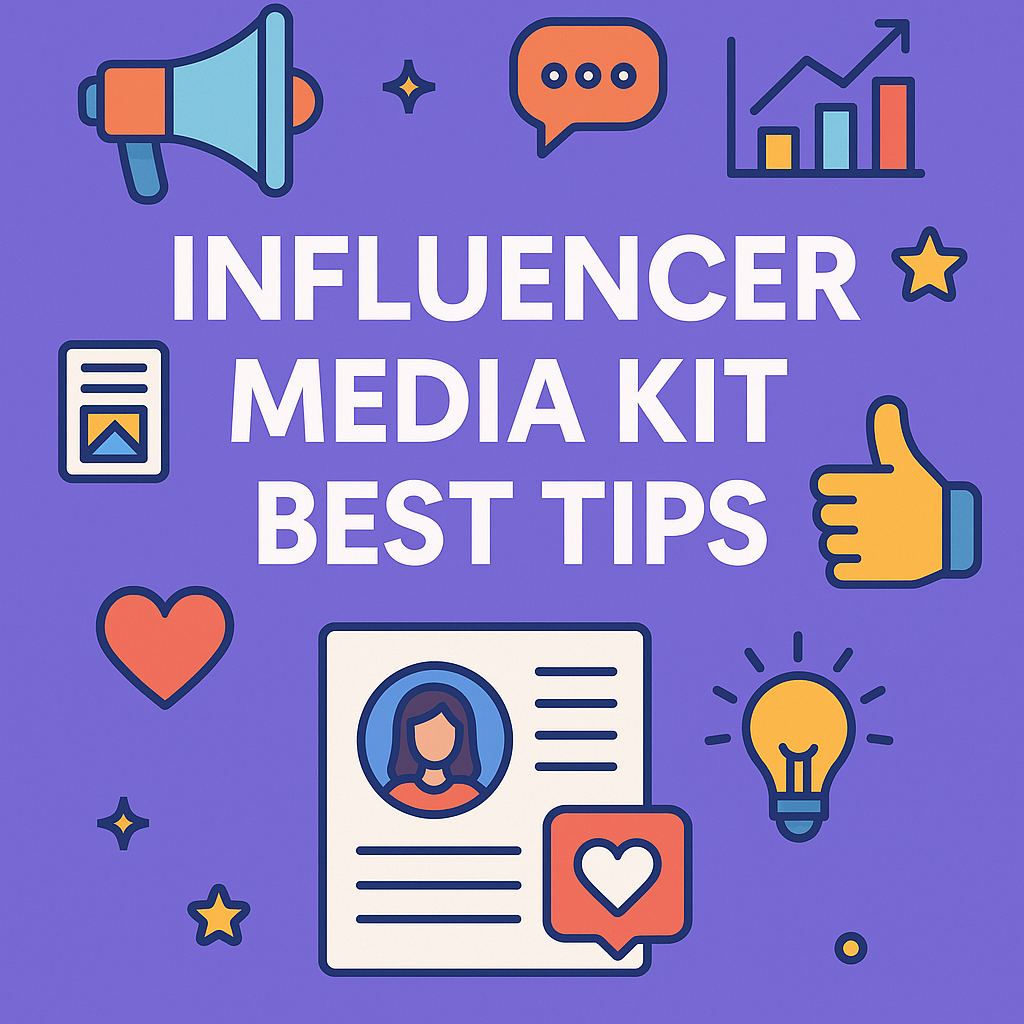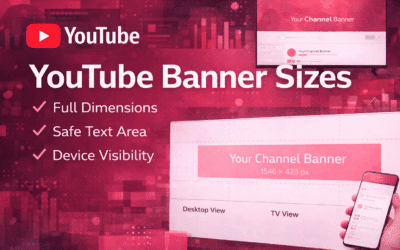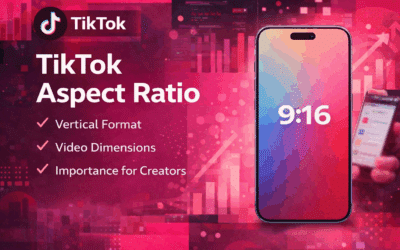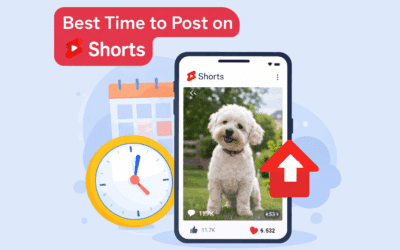Influencer Media Kit
If brands ask for a media kit, you want one that helps them say yes fast. This guide shows you how to build an influencer media kit that tells your story clearly, proves your value with data, and scales with AI. You’ll find simple templates, real-world examples, and practical steps you can use today. Influencer Marketing Platform helps give broader context as you create yours.
What you’ll learn here is designed for quick scanning and fast decisions. The goal is a kit that brands understand in minutes, not hours. You’ll see how to show fit, performance, and pricing in a clean, persuasive way.

Today, AI helps you create, update, and scale your media kit with cleaner data and faster reporting. For a broader context on influencer platforms, see Influencer Marketing Platform.
TL;DR
- Influencer media kit = scannable PDF/web page that speeds brand decisions.
- Must-haves: about, audience, KPIs, case studies, packages, terms/contact.
- Use an influencer media kit template to build fast and stay on-brand.
- AI helps with analytics, reporting, and caption/script ideation.
- Download editable templates and see mock examples below.
What is an influencer media kit and why it matters
Think of your media kit as a one-stop snapshot. It can be a short PDF or a simple web page that shows your audience, performance, creative strengths, offers, pricing, case studies, and contact details. It’s built to help brands say yes, faster.
Brand leaders want a clear picture of fit and impact. An influencer media kit standardizes that view and shortens sales cycles. It also makes approvals smoother by showing proof of performance up front.
Media kit vs. press kit vs. creator portfolio
- Press kit: PR-focused. Includes press releases, quotes, product info, and headshots. Used for editorial coverage, not pricing.
- Creator portfolio: Showreel of work. Great for style, but often lacks structured metrics or rate details.
- Influencer media kit: Commercial asset. Includes audience insights, KPIs, packages, and a rate card built for partnership decisions.
Why CMOs and Heads of Influence care
- Reduces negotiation time with clear packages and ranges
- Standardizes expectations and deliverables
- Highlights brand fit with data and case studies
- Improves conversion from outreach to paid deals
Core market context shows influencer marketing keeps growing and driving ROI. Global spend keeps rising, which is why polished kits matter in vendor selection and approvals.
Core components of an influencer media kit
Every media kit should be scannable. Aim for a one-page summary plus 1–2 expandable pages for more detail. Use this checklist to cover what brands expect.
Brand & creator summary / About
- What to include
- One-line positioning (choose one and adapt):
- B2B SaaS: I produce clear, product-led explainers for SaaS buyers and founders.
- DTC: I create honest product reviews and UGC that convert browsers into buyers.
- Lifestyle: I share practical routines and budget-friendly finds for busy young professionals.
- Contact details: email, agent/manager, calendar link (Calendly), social links
- Team or agency credits (if relevant)
Design notes: Use a headshot, short bio (30–40 words), social icons and clean typography.
Sample snippet
Bio: B2B creator focused on product demos and tutorials for SaaS PMs and startup founders. 40k multi-platform audience; strong CTR on how-to videos. Based in Austin, TX. Open to series and integrated campaigns.
Audience demographics and insights
What to include
- Top metrics: primary countries, age ranges, gender split, top interests/categories, languages
- Example line: Primarily US-based (56%), 25–34 (43%), tech-buyers & startup founders.
- How to gather:
- Export platform analytics (Instagram, YouTube, TikTok) as CSV for last 30/90/365 days.
- Verify sample size (e.g., N=120 posts, or N=90 days).
- Cross-check with Google Analytics for web traffic if relevant.
- Use audience validation tools like Clickanalytic to detect anomalies or fake followers.
Reach, impressions, and engagement metrics
Include simple definitions with formulas:
- Reach: Unique users who saw your content (platform metric).
- Impressions: Total times your content was displayed.
- Engagement rate (per post): ((likes + comments + shares + saves) / followers) × 100.
- Average views: Mean video views across last N posts.
Reporting window
- Use last 3–6 months to smooth spikes.
- Include both median and average when possible for balance.
Visuals
- 3-column mini-dashboard: followers | avg reach | avg engagement rate
- Label date range and sample size (e.g., “Last 90 days, N=47 posts”)
Show platform-specific engagement norms and your variance.
Sources: Influencer Marketing Benchmark Report; Statista
Case studies / Proof of performance
Format: problem → approach → results
- Example: Problem: SaaS X needed demo sign-ups
- Approach: 1 video + 3 in-feed posts + tracked promo link
- Results: 7,200 unique views, 1.8% CTR, 120 sign-ups (Cost per lead $X)
Template copy block
Campaign: [Brand X] — Objective: [Goal]. Approach: [Deliverables]. Results: [Reach], [CTR], [Conversions]. Learnings: [1–2 lines].
Visuals
- Before/after graphics; callouts with % lift; badge for best-performing campaign
Content samples & creative guidelines
What to include
- Screenshots or links to top posts
- Brand-safe style guide: colors, fonts, tone do/don’t
- Sample captions (3 tones): Formal, Conversational, Technical
- Copyright and usage: define how long a brand can reuse content
- Checklist: aspect ratio, file specs, on-screen CTA, disclosure language, hashtags
Offerings, pricing & packages (rate card)
Standardized packages
- Single post (in-feed)
- Story/Reel or Short
- Video/Tutorial (YouTube/TikTok)
- Series/Integrated campaign (multi-post, multi-channel)
- Sponsored long-form (blog or newsletter)
Pricing frameworks
- CPM method: Price = (CPM × follower_count) / 1000
- Example CPM ranges (illustrative): Lifestyle/Mid-tier $10–$30; B2B/SaaS $25–$60+
- Flat-fee + add-ons: Base fee per deliverable; Usage rights multiplier: 30 days x1, 90 days x2, 6–12 months x3–5, perpetual x8–10
- B Bundles: Single post, Short video, 3-month campaign with discount
- Enterprise guidelines: agency fees, net terms, approved vendors, W-9/W-8BEN
Visuals
- Scannable grid listing offering, deliverables, range, and timeline
- Note: List ranges and variables; finalize in IO
Collaboration terms & disclosures
Contract checklist
- Scope, deliverables, timelines
- Payment terms and late fees
- Revisions and approvals
- Usage rights and whitelisting
- Exclusivity windows
- Termination and force majeure
Disclosure guidance
- US (FTC): “Paid partnership with [Brand]. #ad” — clear and conspicuous in caption and/or on-screen
- UK (ASA): “Ad: Paid partnership with [Brand]” — label at the start
FTC Endorsement Guides · ASA influencer guidance
Contact, credibility boosters & social proof in your media kit
Good media kits have clear CTAs. Include strong credibility boosters that brands trust.
- Clear CTA: “Email or book a call”
- Testimonials (name, title, brand)
- Logos of brands, press mentions, awards
- Subscriber/follower counts with date ranges
Influencer media kit templates and examples
What a usable influencer media kit template includes
- Page 1 — One-page summary (top strip): one-line positioning, follower count, top metric highlights, contact
- Page 2 — Audience demographics + metrics dashboard
- Page 3 — Case studies + creative samples
- Page 4 — Packages, pricing, legal/disclosure notes
Visual suggestion
- Wireframe annotations:
- Page 1: Hero KPI at top-left; contact button top-right; short About and social icons
- Page 2: Pie charts for geo/age; bar for interests; mini-KPI cards
- Page 3: Three case study tiles with problem → approach → results
- Page 4: Package list with ranges; bullet legal notes
External template sources
Influencer media kita examples
Note: These mock examples show structure and how fields map to real-world data.
- 1) B2B SaaS creator — mock example
Top metrics: 65% US/UK; 25–34 (48%); avg CTR 1.7% from YouTube tutorials
Pricing: Flat-fee per tutorial + 90-day usage rights; bundle discounts - 2) Lifestyle creator — mock example
Top metrics: 72% female; 18–34 (67%); avg Story view rate 8–12%
Pricing: CPM-based for Reels; add-on for retail whitelisting - 3) Niche micro-influencer (eco-products) — mock example
Top metrics: 30k followers; 2.9% engagement; 41% EU audience
Pricing: Entry bundles (post + 2 Stories) with pilot
How to choose or tailor a template for SaaS brands
Priorities for B2B
- Show pipeline impact: demo requests, trial sign-ups, MQL/SQL conversions
- Add audience job titles, industries, company size distribution
- Highlight channels that pull in decision-makers (LinkedIn, YouTube)
Customization checklist
- Swap consumer demographics for company size and job titles
- Show lead-gen CTA performance (CTR, CVR, CPL)
- Include UTM-based case studies and sales-assisted notes
How AI fits into content creation and media kits
AI is a productivity and analytics multiplier, but human oversight is needed for authenticity and compliance.
AI-assisted analytics & reporting
Use cases
- Auto-update KPI dashboards (pulls platform data into one view)
- Anomaly detection (flag sudden engagement drops or spikes)
- Predicted reach and best-posting windows
- Audience clustering and lookalike segmentation with ML
Tools
- CreatorIQ, HypeAuditor, Sprout Social
- McKinsey on generative AI for marketers —
The Generative AI Opportunity for Marketers
AI-powered content ideation & creation for the media kit
Practical workflow
- Input brief → generate 10 caption variants → human edit to 3 → A/B test
- Draft briefs, shot lists, hooks, and first-draft scripts for intros
Helpful tools
- OpenAI ChatGPT (ideation), Descript (transcripts), Canva Magic Write (caption variants)
Guardrails
- Keep your voice guide; edit for tone and claims
- Save prompt libraries for repeat formats
Quality control, authenticity & legal guardrails
Checklist
- Verify all factual claims (features, pricing, performance)
- Run plagiarism checks on AI drafts
- Confirm disclosure language is present and prominent
- Human review: tone, brand safety, and legal signoff for claims
Industry context
Context from journalism and newsroom research underscores the need for human oversight with AI tooling. Source: Reuters Institute — https://reutersinstitute.politics.ox.ac.uk/
Building a media kit for SaaS and brand-partner strategy
Aligning with brand goals and buyer personas
- Turn creator metrics into business outcomes
- Template sentence: “This creator reaches X% of our target accounts and drives Y leads per 10k viewers.”
- Quantify fit: compare audience job titles to buyer personas; report demo form submissions with UTMs
Demonstrating pipeline impact & attribution in media kit
Measurement framework
- Top-of-funnel: impressions → reach → CTR
- Mid-funnel: landing page views → sign-ups → MQLs
- Bottom-funnel: SQLs → opportunities → revenue/ROAS
Tracking tips
- UTM structure: utm_source=creator_name&utm_medium=social&utm_campaign=brand_qX
- Add promo codes and vanity links for offline/Story tracking
- Explain attribution: last-touch vs. multi-touch; show both when possible
Negotiation tips & packaging for enterprise clients
Enterprise packaging
- Multi-channel pilots with defined success metrics
- Performance guarantees with make-good posts
- Phased IOs, NDAs, SLAs, security reviews
Negotiation levers
- Exclusivity window length (and fee)
- Usage terms and whitelisting scope
- Reporting cadence and escalation clause
- Payment terms (net-30 vs. net-45), currency, and tax forms
Data storytelling: presenting results clearly
KPIs that brands care about
- Reach — unique viewers; broad awareness
- Engagement Rate — audience interest; predictor of conversion
- CTR — clicks per view
- Conversion Rate — completions per click
- CPL — spend per qualified lead
- LTV — lifetime value
- ROAS — revenue per ad dollar
Visual storytelling: charts, dashboards & one-page overviews
Recommended visuals
- Trend line for growth
- Bar chart for top-performing posts
- Pie for demographics
- Single KPI callout above the fold
Accessibility
- Alt text for images, data tables; ensure WCAG AA color contrast
- Table summaries; keyboard-friendly links
Common pitfalls in data presentation & how to avoid them
Pitfalls
- Cherry-picking a single viral post
- Mixing time windows across platforms
- Unverified screenshots
- No context for reach or audience changes
Fixes
- Always show date range and sample size
- Attach platform-native exports
- Include baseline benchmarks
- Note major events that skew results
Practical steps — How to create your influencer media kit
Step 1: Gather data and proof of performance
- Export analytics for last 90 days from each platform
- Pull 3 top-performing posts per platform
- Collect proof of conversions (UTMs, promo codes) and invoices
Keywords: influencer media kit, proof of performance
Step 2: Select a template or build a scannable layout
Options: one-page PDF; multi-page PDF (3–4 pages); web landing page
- Tools: Google Slides, PowerPoint, Canva
- Exports: PDF; public URL for landing page
Templates
- Canva influencer media kit templates — Canva templates
- HubSpot media kit guidance — HubSpot media kit
Step 3: Write clear value propositions for brands
Use this formula
Audience summary + Top KPI + Desired outcome for brand
Example: “Audience: 40k monthly viewers — SaaS PMs and founders — Avg CTR 1.6% — Ideal for demo sign-up campaigns.”
Step 4: Design for scannability
- Use 14px+ fonts; aim for a 3–5 second skim
- Place one hero KPI at the top
- Use icons for key metrics
- Bullet lists for deliverables and timelines
Step 5: Review for accuracy, compliance & brand fit
- QA: verify export dates, ensure disclosure phrasing exists
- Legal: standard terms reviewed for enterprise deals
Step 6: Publish and share with personalized outreach
- Host PDF on cloud storage; create a short landing page
- Write outreach templates: cold intro, follow-up, and pitch with case study
- Add UTM parameters and track clicks
Common mistakes to avoid
- Outdated metrics → use last 90 days
- Vague pricing → provide ranges
- No disclosures → include FTC/ASA lines
- Overloading with raw data → summarize KPIs
- Not tailoring to brand → include a one-line “why this creator fits your brand”
Common FAQs about influencer media kits
What should be included in an influencer media kit?
Include positioning, audience demographics, top KPIs, case studies, offerings/pricing, contact details, and disclosures. Keep it scannable and current. Keywords: influencer media kit
How do I create a media kit quickly?
Start with an influencer media kit template, pull last 90 days of analytics, and add one strong case study. Export as a one-page PDF first. Keywords: influencer media kit template, influencer media kit
What’s the difference between an influencer media kit and a press kit?
Press kits are for PR and editorial; influencer media kits focus on audience fit, performance, and pricing for deals. Keywords: influencer media kit, press kit
How can AI help with my media kit and content creation?
AI speeds analytics reporting and drafts caption/script variants. Always add human edits for tone and disclosure compliance. Keywords: influencer media kit, AI, content creation
How should I price my influencer services?
Use CPM and flat-fee methods, publish starting ranges, and set usage multipliers. Explain variables like exclusivity and deliverable count. Keywords: influencer media kit, rate card
How do brands evaluate influencer media kits?
Brands assess audience fit, proof of performance, clear pricing, compliance, and professional presentation. Case studies and recent KPIs carry the most weight. Keywords: influencer media kit, brand partnerships
Conclusion
A strong influencer media kit speeds decisions, proves your value with data, and makes pricing clear. Use a clean template, add case studies, and let AI keep your metrics fresh. Start now with the editable tools below.
Sources:
Influencer Marketing Articles
Actionable tips to get more success with influencer marketing campaigns
YouTube Video Size – Guide (2026)
The correct YouTube video size is 1920 × 1080 (16:9) for standard videos and 1080 × 1920 for Shorts. This guide includes exact thumbnail dimensions, banner safe area, resolution tables and export settings to avoid compression or cropping issues.
TikTok Aspect Ratio: Complete 2026 Guide
The ideal TikTok aspect ratio is 9:16 with a resolution of 1080 × 1920 pixels. This 2026 guide covers dimensions, safe zones, file size limits, compression tips, and benchmarks to help you optimize video quality and engagement on TikTok.
Best Time to Post on YouTube Shorts in 2026
There is no universal “best time” to post YouTube Shorts.
This guide compares top industry studies, real data numbers, and YouTube Studio insights to show when Shorts gain the most early velocity. You’ll learn how timing influences views and engagement, and how to test posting windows to find the peak hours for your own channel.






